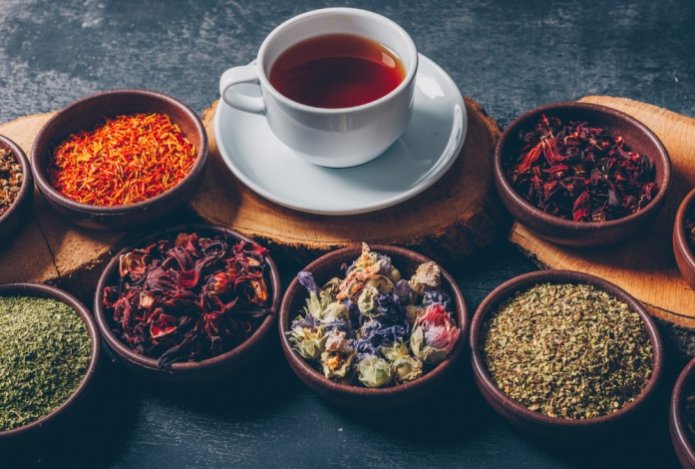The Art of Gourmet Tea Selection: A Guide to Finding Your Perfect Brew

Tea is more than just a drink; it’s an experience. From its origins in ancient China to its global popularity today, tea has evolved into a sophisticated beverage with an array of flavors, aromas, and health benefits. Gourmet tea, in particular, takes this experience to another level, inviting tea lovers to savor the finest leaves from the world’s most reputable tea-growing regions. Here’s how to navigate the world of gourmet tea and find the perfect brew for any occasion.
1. Understanding Gourmet Tea
Gourmet tea is a premium category that stands out for its quality, authenticity, and often, its single-origin nature. Unlike mass-produced teas, which might use low-grade leaves and artificial flavors, gourmet teas are crafted with attention to detail, ensuring high-grade leaves, minimal processing, and naturally developed flavors. This premium quality means gourmet teas often command a higher price but offer a far superior tasting experience.
Key Characteristics of Gourmet Teas
- Single-Origin Leaves: Sourced from a specific region, plantation, or even a particular season.
- Careful Processing: From plucking to packaging, each step is meticulously managed to preserve the integrity and flavor.
- Organic Options: Many gourmet teas are grown without pesticides, enhancing the purity of the tea.
2. Types of Gourmet Tea: Choosing Your Base
While there are countless varieties of tea, most gourmet teas fall into six main categories: green, black, oolong, white, pu-erh, and herbal infusions. Each has unique properties, and selecting the right type is the first step in refining your tea palate.
Green Tea
Green tea is minimally processed, giving it a light, fresh, and sometimes grassy flavor. Gourmet green teas, like Japanese matcha and Chinese dragonwell (Longjing), are rich in antioxidants and known for their subtle flavors. Opt for high-grade green tea for a delicate experience that’s best enjoyed without milk or sweeteners.
Black Tea
With bold flavors and higher caffeine content, black tea is fully oxidized. Varieties like Assam, Darjeeling, and Ceylon are common in gourmet black tea selections. Darjeeling, known as the “Champagne of teas,” offers a unique muscatel flavor, especially when sourced from reputable estates in India.
Oolong Tea
Oolong sits between green and black tea in oxidation levels, resulting in a complex flavor profile. Gourmet oolongs, like Taiwan’s Iron Goddess (Tie Guan Yin) and Wuyi Rock tea, have floral and mineral notes that make each sip a journey in flavor exploration.
White Tea
White tea is the least processed of all tea types, resulting in a delicate flavor with low caffeine. Silver Needle and White Peony are popular choices, each offering a smooth and slightly sweet taste. White tea is often enjoyed by connoisseurs who appreciate its purity and subtlety.
Pu-erh Tea
This fermented tea from China is known for its earthy, rich flavors that deepen over time. Some premium pu-erh teas are aged for decades, developing complex, almost wine-like characteristics. Ideal for those looking for a unique and potent flavor, pu-erh is often an acquired taste among tea aficionados.
Herbal Infusions
While not technically “tea,” herbal infusions like chamomile, rooibos, and hibiscus have carved a place in the gourmet tea world. Herbal infusions provide a caffeine-free alternative, each with distinctive flavors and health benefits.
3. Pairing Flavors: Finding Notes That Match Your Palate
Gourmet tea tasting is much like wine tasting, where certain characteristics are sought and appreciated. Here are a few profiles to consider when choosing your tea:
- Floral Notes: Found in oolongs and some white teas; ideal for a gentle, aromatic experience.
- Fruity Notes: Present in Darjeeling and fruity blends; adds a touch of natural sweetness.
- Earthy Notes: Common in pu-erh and some green teas; these teas offer a grounding, bold flavor.
- Nutty or Toasted Notes: Often found in Hojicha (a roasted Japanese green tea) and oolongs; perfect for a comforting, warm experience.
It’s helpful to sample a variety of gourmet teas to discover which flavor profiles align with your preferences.
4. Perfecting Your Brew: Tips for Steeping Gourmet Tea
With gourmet tea, brewing technique is essential for unlocking the full depth of flavor. Here’s a quick guide to making the perfect cup:
- Temperature Control: Different teas require different water temperatures. For example, green tea should be brewed at 160-180°F (70-80°C), while black tea can handle boiling water.
- Steep Time: Gourmet teas often have precise steeping requirements. Oversteeping can result in bitterness, especially for green and white teas.
- Quality of Water: Filtered water is ideal to prevent impurities from affecting the taste of your tea.
- Multiple Infusions: Some gourmet teas, particularly oolongs and pu-erhs, can be steeped multiple times, with each infusion revealing a new layer of flavor.
5. Sourcing High-Quality Gourmet Tea
Finding the best gourmet tea can be challenging, but here are some tips for selecting reputable sources:
- Seek Out Specialty Stores or Tea Shops: Boutique tea shops often have a curated selection of premium teas. They may also offer samples, allowing you to try before you buy.
- Purchase from Reputable Brands: Companies that emphasize quality and sustainability, like Harney & Sons, Teavana, and local artisanal brands, often have high-grade options.
- Consider Direct-from-Estate Teas: Some estates and plantations sell directly to consumers. This option can guarantee authenticity and provide more unique flavor profiles.
6. Enjoying the Gourmet Tea Experience
Gourmet tea is about slowing down, appreciating subtle flavors, and indulging in the moment. Consider pairing your tea with a good book, a bit of mindfulness, or a conversation with friends. With a diverse selection and endless combinations of flavors, gourmet tea offers a sensory journey that can be both relaxing and enriching.
In conclusion, exploring gourmet tea is a rewarding adventure that deepens your appreciation for this timeless beverage. By understanding the basics of tea types, flavor profiles, and brewing techniques, you can confidently select the perfect gourmet tea for any occasion. So, why not steep a cup today and discover the art of gourmet tea for yourself?



